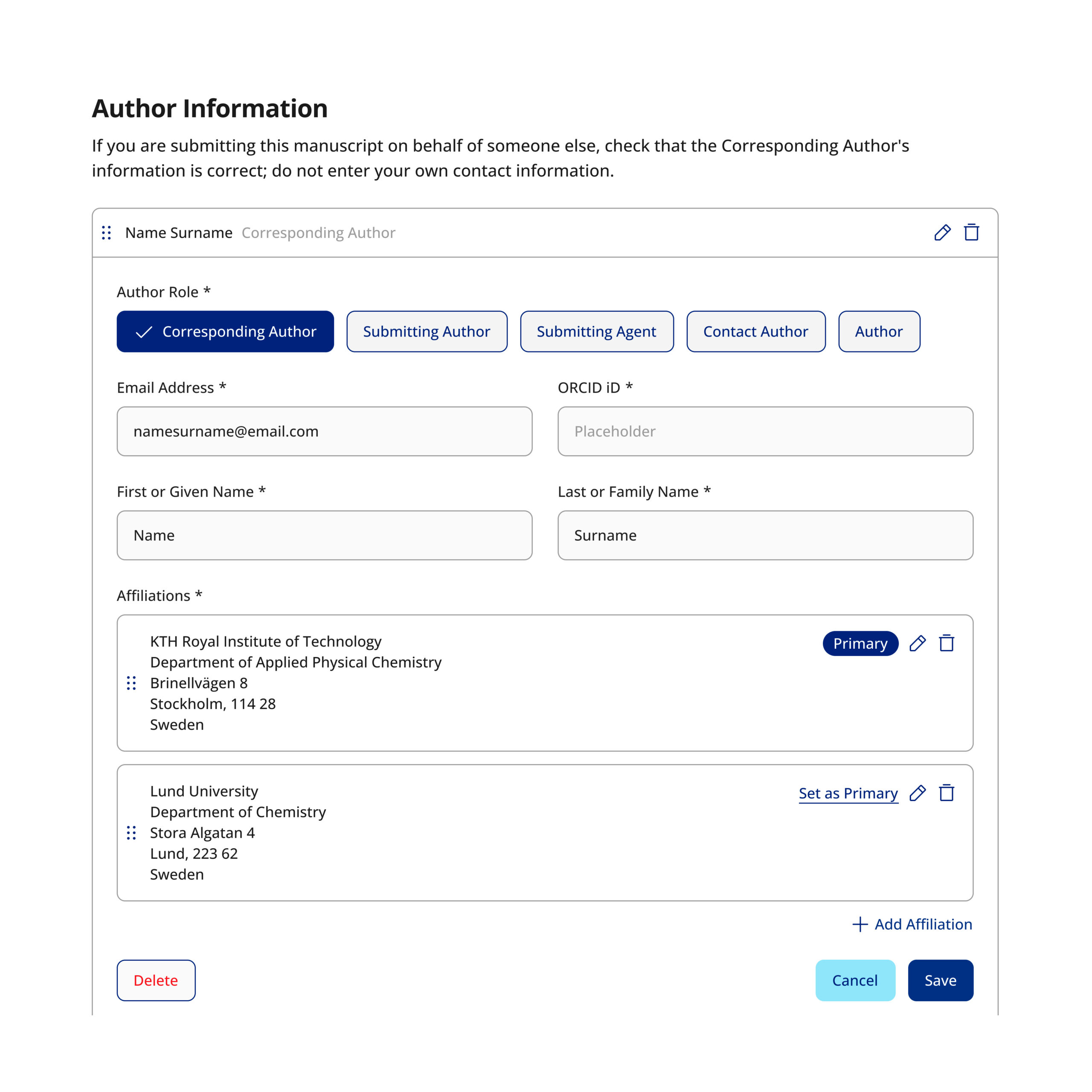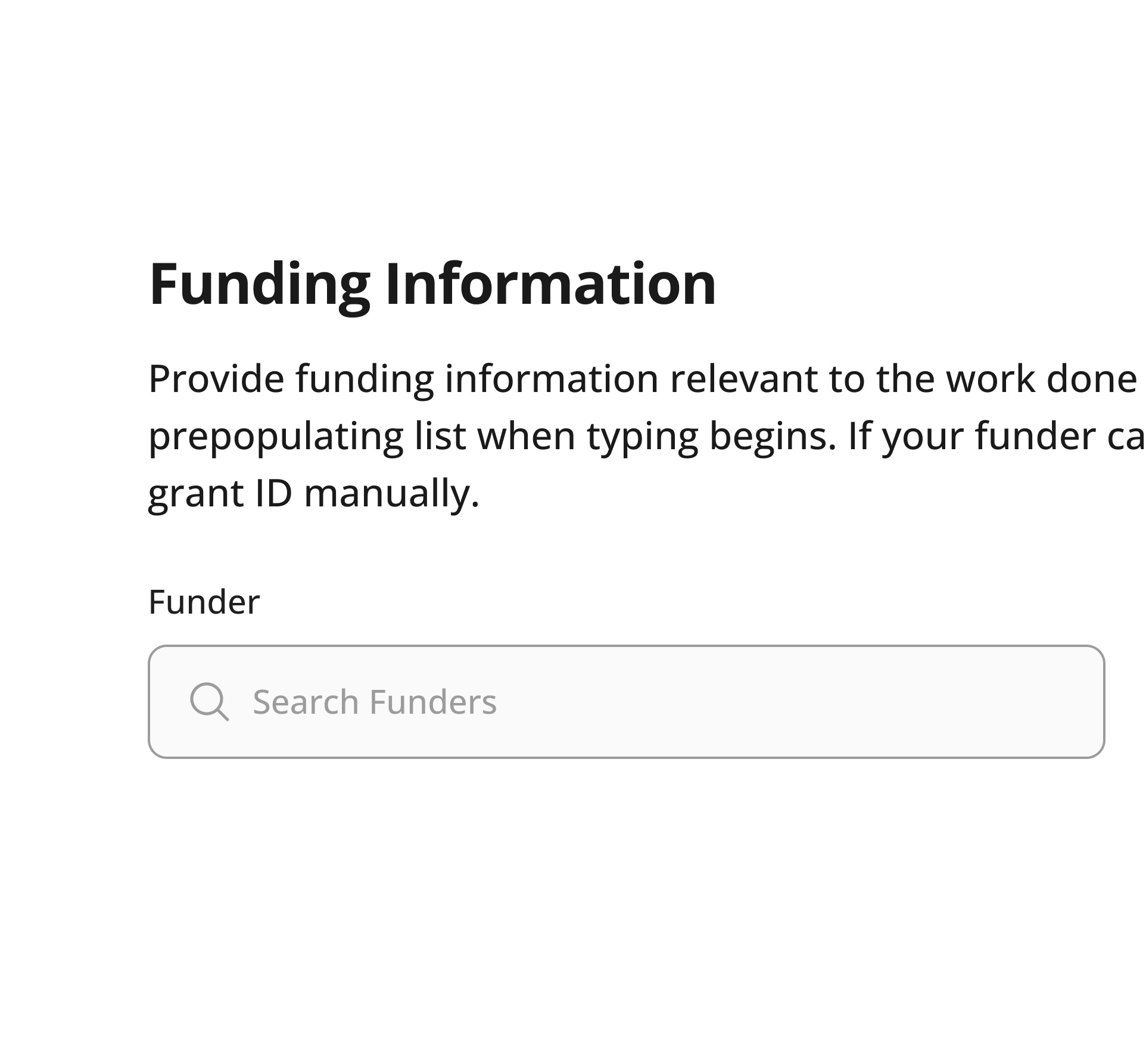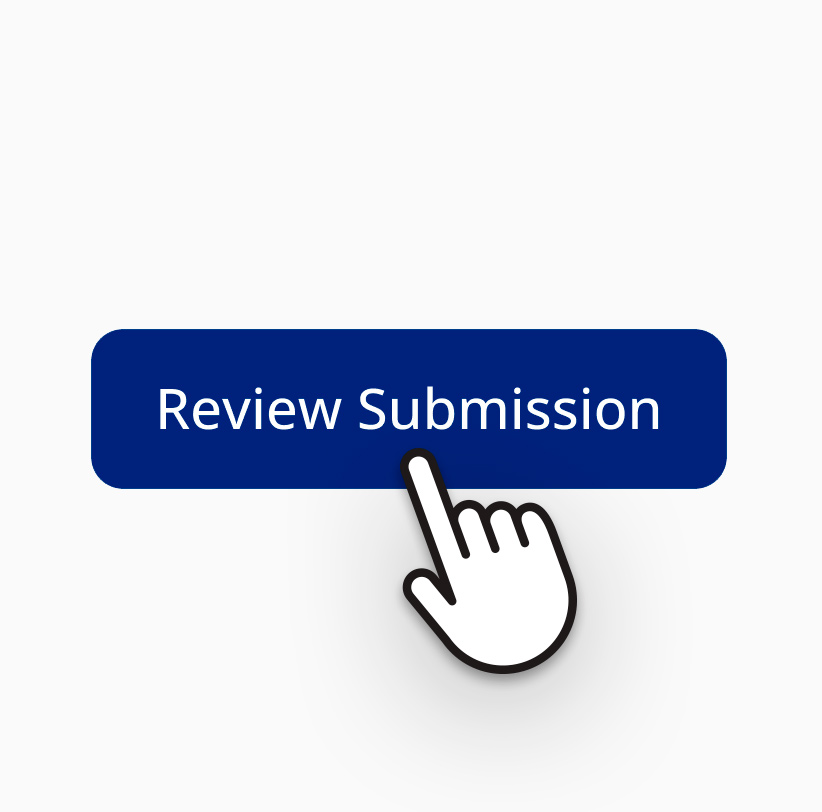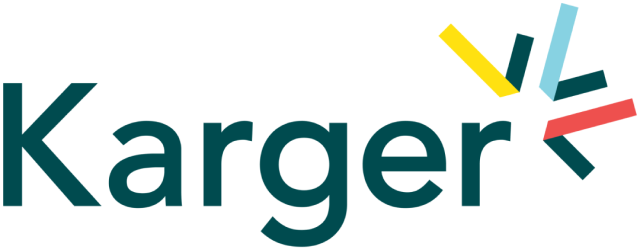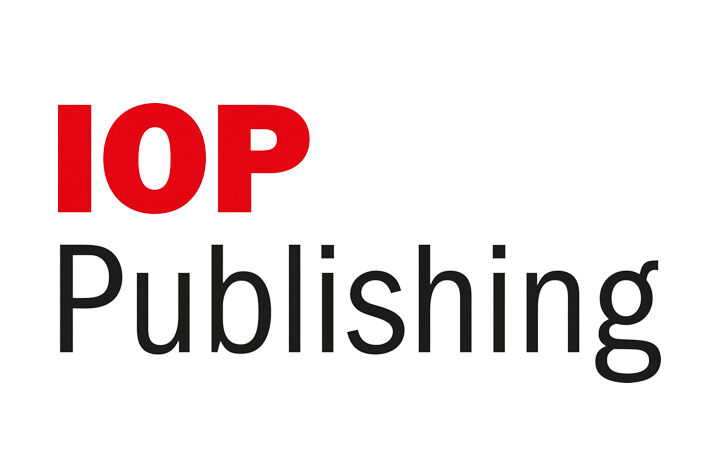Submissions
Collect quality submissions and clean metadata
With manual submission processes, there’s a lot that can go wrong. Incorrect affiliations, missing email addresses, etc. This all causes issues down the line.
When authors submit via ChronosHub, we pull most of what’s needed from the manuscript itself using AI and automatically fetch relevant agreements and waivers.
De-stress your authors
You won’t just save them valuable time. You’ll give them peace of mind over any expected charges and funder compliance.
Do less cleanup
By flagging errors early in the process and verifying metadata against known identifiers, you’ll spend less time chasing corrections post-submission.
Tailor to your needs
Our submission flow bends to each journal’s requirements. You decide what text and which fields are shown. That goes for standard and custom questions.
Automatic discount detection
When publishing open access, authors can be unaware of discounts they’re eligible for. ChronosHub makes sure they don’t miss out by automatically showing discounts and waivers against the article’s required author charges, such as page charges and/or APCs.
These deductions are usually linked to the corresponding author’s affiliation. But you can also choose different criteria, such as submission or publication date.
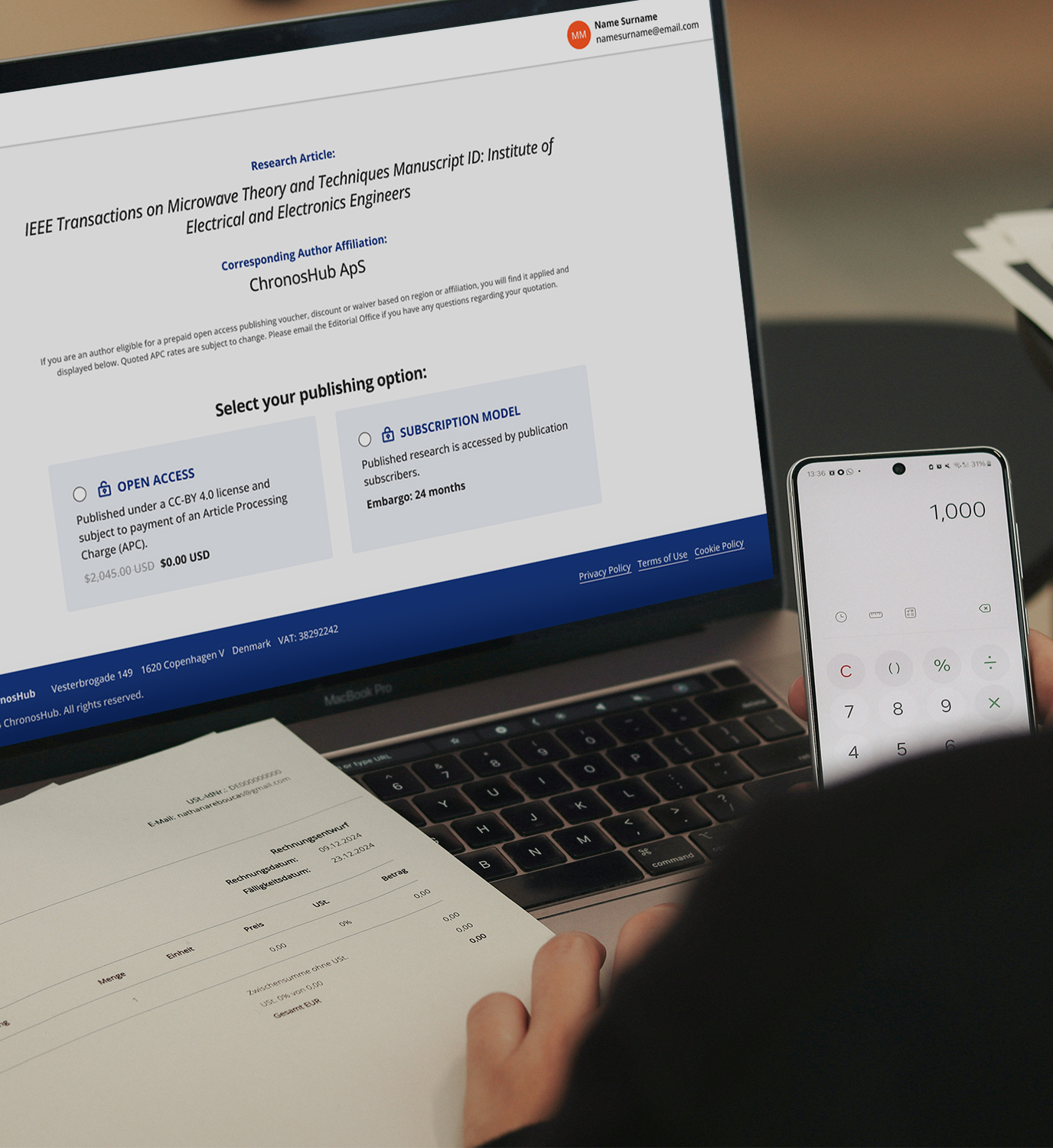
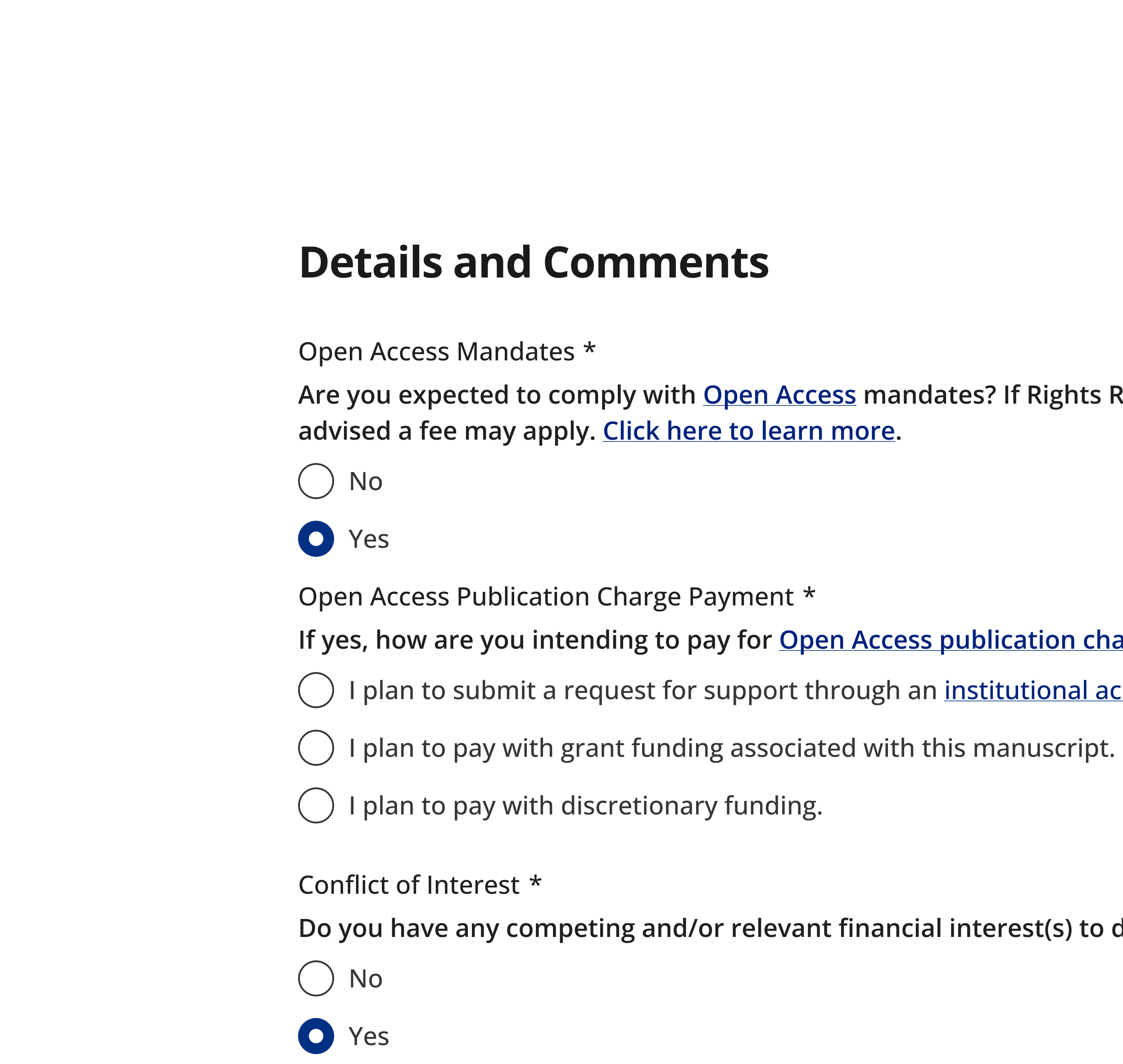
Get started
Popular ChronosHub modules




